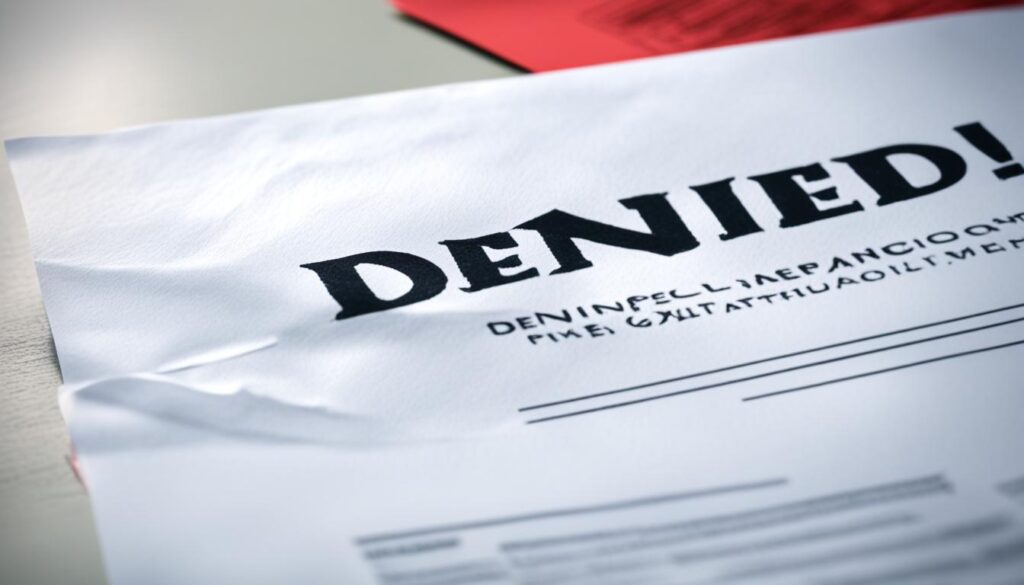Have you ever thought how one online comment could turn into a legal issue? In today’s digital world, our online image is crucial. A huge 78% of people have faced negative reviews that damaged their reputation1. This shows we need strong strategies for dealing with legal threats and cease-and-desist notices in online reputation management.
Our digital actions can affect our real lives. Social media attacks and false online info are big challenges. In fact, 64% of people have faced false information about them online1. These issues can quickly lead to legal action, needing quick and smart responses.
Cease-and-desist letters are often used to fix online reputation problems. They are formal demands to stop actions that harm someone’s reputation2. Knowing how to handle these letters is key to protecting your rights and your online image. Let’s explore strategies to help you deal with these legal challenges and protect your digital reputation.
Key Takeaways
- Online reputation issues can greatly affect personal and professional chances
- Cease-and-desist letters are common for fighting online defamation
- Knowing your legal rights is vital when facing online threats
- Being proactive can prevent and manage online reputation problems
- Getting legal advice is often needed when dealing with legal notices
- Good response strategies can solve conflicts and protect your online image
Understanding the Impact of Online Reputation
In today’s digital world, our online image shapes our personal brand and professional reputation. A positive digital presence can open doors, while negative content can shut them. Managing our online reputation means keeping an eye on and shaping the info about us online3.
The online world connects everything, so a reputation issue in one place can spread fast. This quick spread makes online defamation more harmful than old-school defamation4. Our online actions, like our social media, are like a first impression for others, like employers or clients.
Having a bad online reputation can mean missing out on chances. Many people check online before making choices3. In Texas, knowing the difference between libel (written lies) and slander (harmful words) is key when dealing with online issues5.
“Your online reputation is your most valuable asset in the digital age. Protect it fiercely.”
To keep our online image safe, we should:
- Keep an eye on our online presence
- Set up Google alerts for our name
- Use social media policies to lower risks4
- Build a good online presence with great content and positive reviews5
If we face reputation problems, we have legal options like cease and desist letters, asking for retractions, or taking legal steps4. But stopping problems before they start is better than fighting them in court. By managing our online presence well, we can boost our personal brand and protect our professional reputation.
Common Online Reputation Issues Leading to Legal Threats
In today’s digital world, keeping a good online reputation is tough for both businesses and individuals. Negative reviews, false info, and social media attacks can hurt your image fast. Cyberbullying, data breaches, and using someone’s info without permission cause big problems.

Online reviews are key in shaping what people buy. A huge 93% of users make their buying choices based on these reviews. They usually read one to six reviews before deciding6. This shows how much digital feedback affects how people see a brand.
Companies often find it hard to keep up with their online image. About 62% don’t have a clear plan for dealing with bad social media posts. And 45% don’t check their social media for issues with copyrights and privacy7. This can lead to big legal troubles and hurt their reputation.
Internet defamation happens on many platforms like search engines, social media, forums, and review sites. False claims, defamatory videos, and fake bad reviews are common. These can lead to legal threats8. They can also cause a lot of emotional and professional harm.
To keep a good online reputation, watching your digital presence and fixing negative content quickly is key. Sometimes, you might need legal help to deal with anonymous attacks. By being alert and quick to act, we can lessen the risks of online reputation problems.
Handling Legal Threats and Cease-and-Desist Notices
Cease and desist letters are powerful tools for fighting online defamation. They formally ask someone to stop certain actions. This can solve problems without going to court9. These letters are not legally set in stone but are a strong warning to those who might be breaking the rules9.
When dealing with online reputation issues, it’s key to collect solid digital proof. This includes screenshots, statements from witnesses, and important messages. This evidence is crucial for legal action later.

For defamation, legal options include lawsuits for damages and asking for court orders to stop the problem. These lawsuits can cost a lot, from $120,000 to $750,000, based on how complex the case is10. So, it’s smart to look at other ways to solve the issue first.
Asking for retractions is another way to fix false information. We can ask those who spread the false info to take it down or fix it. This might help avoid expensive court battles. Talking things out often helps settle disputes without going to court, saving time and money.
“Responding quickly and right to a cease and desist letter can stop more legal trouble.”
It’s key to know that cease and desist letters are different from court orders. Letters are not legally set in stone, but orders are strict rules that must be followed11. If you get a cease and desist letter, it’s wise to talk to a lawyer to figure out what to do next9.
| Action | Purpose | Legal Weight |
|---|---|---|
| Cease and Desist Letter | Formal demand to stop behavior | Not legally binding |
| Retraction Request | Ask for removal/correction of false info | Not legally binding |
| Defamation Lawsuit | Seek damages and injunctive relief | Legally binding if successful |
| Cease and Desist Order | Court-issued injunction | Legally binding |
Legal Framework for Online Reputation Management
The legal rules for managing online reputations are complex and always changing. Defamation laws cover both written and spoken false statements that harm someone’s good name12. These laws help protect people and businesses from damage to their reputation12.
Recently, we’ve seen more online attacks and defamation cases. False reviews are now a common way to attack someone’s reputation13. This shows we need strong legal protection13.

Privacy laws are key to keeping personal info safe online. When someone uses someone else’s trademark or copyright without permission, intellectual property rights come into play. The legal system must find a balance between free speech and protecting against harmful statements.
“The First Amendment protects freedom of speech, but there are exceptions for inciting violence, libel, slander, child pornography, and obscene materials.”
Proving defamation cases often relies on digital evidence. It’s important to keep track of the defamatory content and how it spreads. For public figures, proving the case can be harder, needing to show either actual malice or a reckless disregard for the truth12.
| Legal Aspect | Prevalence | Impact |
|---|---|---|
| Online Harassment | 41% of adults | Increased need for legal protection |
| Nonconsensual Pornography Laws | 46 states | Enhanced privacy safeguards |
| Online Impersonation Laws | Multiple states (NY, CA, LA, TX) | Improved identity protection |
Forty-six states now have laws against nonconsensual pornography. Many states also have laws against online impersonation14. These laws show we need to protect our online reputations and privacy more in the digital world131214.
Proactive Strategies for Protecting Online Reputation
In today’s digital world, keeping your online reputation safe is key. We’ve put together some top tips to help you keep a good image and shield your brand.

Keeping an eye on your reputation is the first step. Use alerts for your brand name and key words to watch for mentions. This way, you can quickly deal with any bad talk or wrong info15. Being quick to respond helps keep your brand’s good name intact.
Managing your social media is also crucial for your online look. Tools like Hootsuite help you keep an eye on your brand across different sites, track mentions, and talk to customers16. Making good content and using SEO can push out the positive stuff, making a good first impression on new customers16.
Being ready for a crisis is key to keeping your reputation strong. Having a solid plan helps you handle brand crises, media, and social media backlash well15. Remember, one bad experience can make 72% of customers switch brands, showing how important being ready is17.
Working on your professional brand, like having a strong LinkedIn and website, can help your online image. For big brands like Coca-Cola, over 30% of their value comes from their name and brand identity17.
“A strong online reputation can lead to increased sales, while a negative one can deter potential customers.”
| Strategy | Benefits | Tools |
|---|---|---|
| Reputation Monitoring | Real-time brand tracking | Google Alerts |
| Social Media Management | Consistent brand messaging | Hootsuite |
| Content Creation | Positive search results | WordPress |
| Crisis Management | Swift issue resolution | Crisis communication plan |
By using these strategies, you can keep your online reputation safe and set yourself up for success online.
Conclusion
In today’s digital world, managing your online reputation is key for both people and businesses. We’ve looked at ways to deal with legal threats and cease-and-desist notices online. These notices often come up in fights over intellectual property, like trademarks, copyrights, and patents1819. They act as warnings and can quickly settle legal issues outside of court, saving time and money19.
Knowing the laws about online defamation and privacy is crucial for fixing your reputation. Getting help from skilled lawyers is very helpful when dealing with complex online issues. They can write strong cease and desist letters that follow the law and protect your rights20. It’s important to note, anyone can send a cease and desist letter, but getting legal advice makes it stronger and more effective20.
Keeping a good online image takes constant work and watching. We need to balance protecting our reputation with respecting free speech, a tricky balance in our connected world. By using proactive steps and the right legal actions, we can handle our online reputation well and defend our legal rights against threats.
FAQ
Why is online reputation important?
What are some common online reputation issues that lead to legal threats?
How do cease-and-desist letters help in addressing online reputation issues?
What legal remedies are available for online defamation?
How do defamation laws apply to online reputation issues?
What proactive strategies can help protect online reputation?
Why is professional legal guidance important in online reputation management?
Source Links
- The Role of Legal Support in Resolving Online Reputation Issues – https://www.linkedin.com/pulse/role-legal-support-resolving-online-reputation-issues-devin-miller-s6spc
- Cease and Desist Letter Guide: Purpose, Timing, and FAQs – https://davisbusinesslaw.com/cease-and-desist-letter-guide/
- Protect Your Online Image: The Power of a Reputation Management Lawyer – Spitz Solutions – https://spitzsolutions.com/protect-your-online-image-the-power-of-a-reputation-management-lawyer/
- Online Defamation: Legal Strategies for Handling False Accusations – Hepworth Legal | Attorneys at Law – https://www.hepworthlegal.com/online-defamation-legal-strategies-for-handling-false-accusations/
- Comprehensive Guide to Managing Negative Online Reviews – https://smcesq.com/managing-negative-online-reviews/
- Guide to Reputation Management: Tips & Strategies – https://www.joshmeah.com/blog/reputation-management-protecting-your-brand-online
- Eight Tips to Help Identify Legal Risks of Social Media – https://legal.thomsonreuters.com/en/insights/articles/eight-tips-to-help-identify-legal-risks-of-social-media
- Internet Defamation and Content Removal Attorneys – https://kjk.com/internet-defamation-and-content-removal-attorneys/
- What Is a Cease and Desist Order? – https://www.callahan-law.com/what-is-a-cease-and-desist-letter/
- Taylor Porter | Louisiana’s Law Firm – https://www.taylorporter.com/blog/post/trademark-threats-and-demand-letters-anatomy-of-a-scam/index.html
- Is a cease and desist letter enforceable? – https://www.dennemeyer.com/ip-blog/news/is-a-cease-and-desist-letter-enforceable-common-issues-and-best-practices/
- The Legal Implications of Online Defamation in Reputation Management – FasterCapital – https://fastercapital.com/content/The-Legal-Implications-of-Online-Defamation-in-Reputation-Management.html
- The Legal Implications of Online Reputation Attacks and Defamation – https://www.linkedin.com/pulse/legal-implications-online-reputation-attacks-devin-miller-dl0mc
- The law and reputation management: 9 things you need to know – ReputationDefender – https://www.reputationdefender.com/blog/orm/the-law-and-reputation-management-9-things-you-need-to-know
- The Essential Business Guide to Safeguarding Your Brand Online – https://businessingmag.com/21204/equipping/safeguarding/
- Online Brand Protection: How to Safeguard Your Digital Reputation – https://www.brandverity.com/blog/online-brand-protection-how-to-safeguard-your-digital-reputation
- How to Develop a Successful Brand Protection Strategy for Your Company – https://www.liferaftinc.com/blog/how-to-develop-a-successful-brand-protection-strategy-for-your-company
- What to Do If You Get a Cease and Desist Letter – https://www.heerlaw.com/cease-and-desist-letter
- Cease and Desist Letters: Defined, Usage, and Samples – https://www.csulb.edu/college-of-business/legal-resource-center/article/cease-and-desist-letters-defined-usage-and
- Everything You Need to Know About Cease and Desist Letters! – https://uslawpros.com/cease-and-desist-letters/

